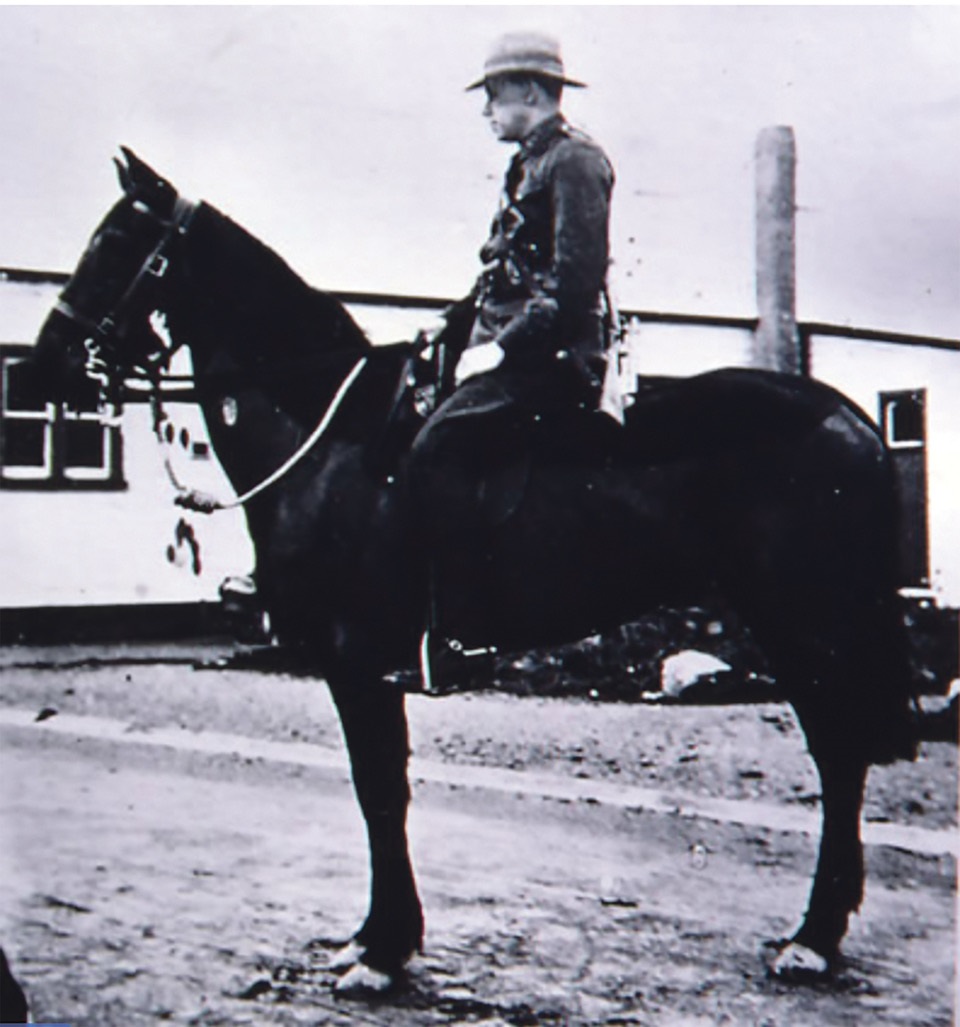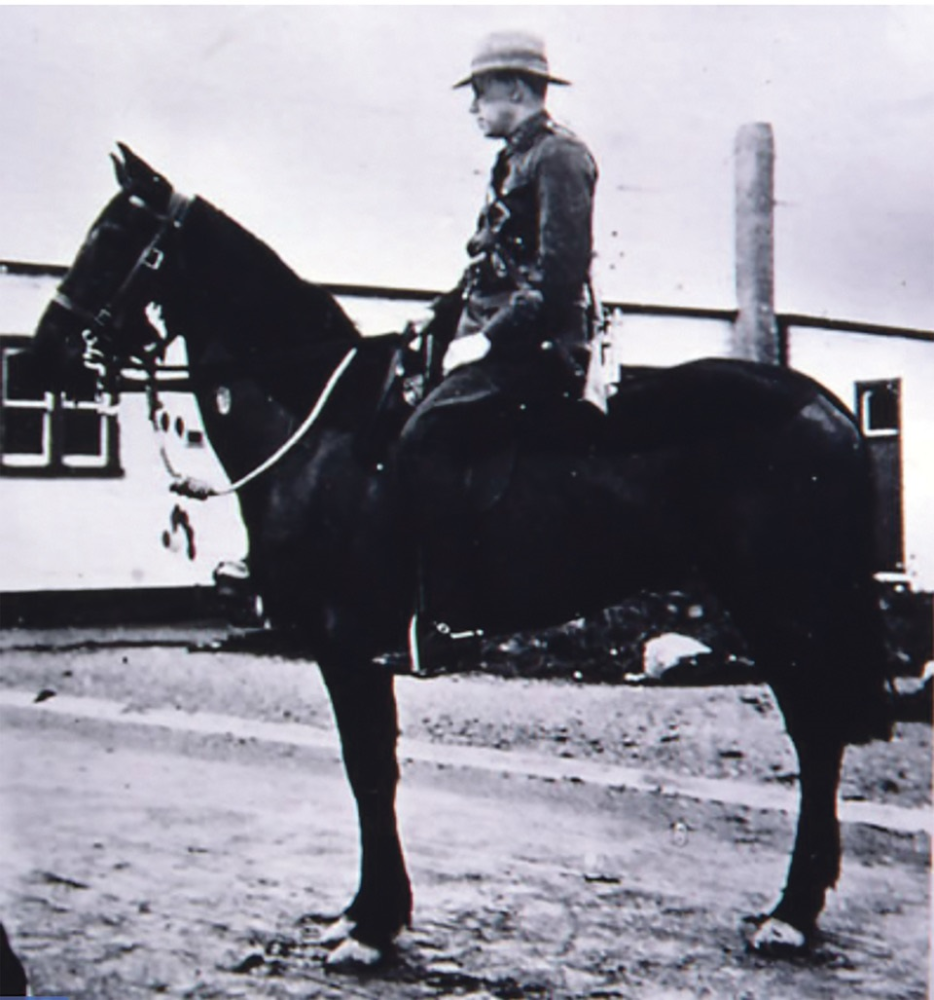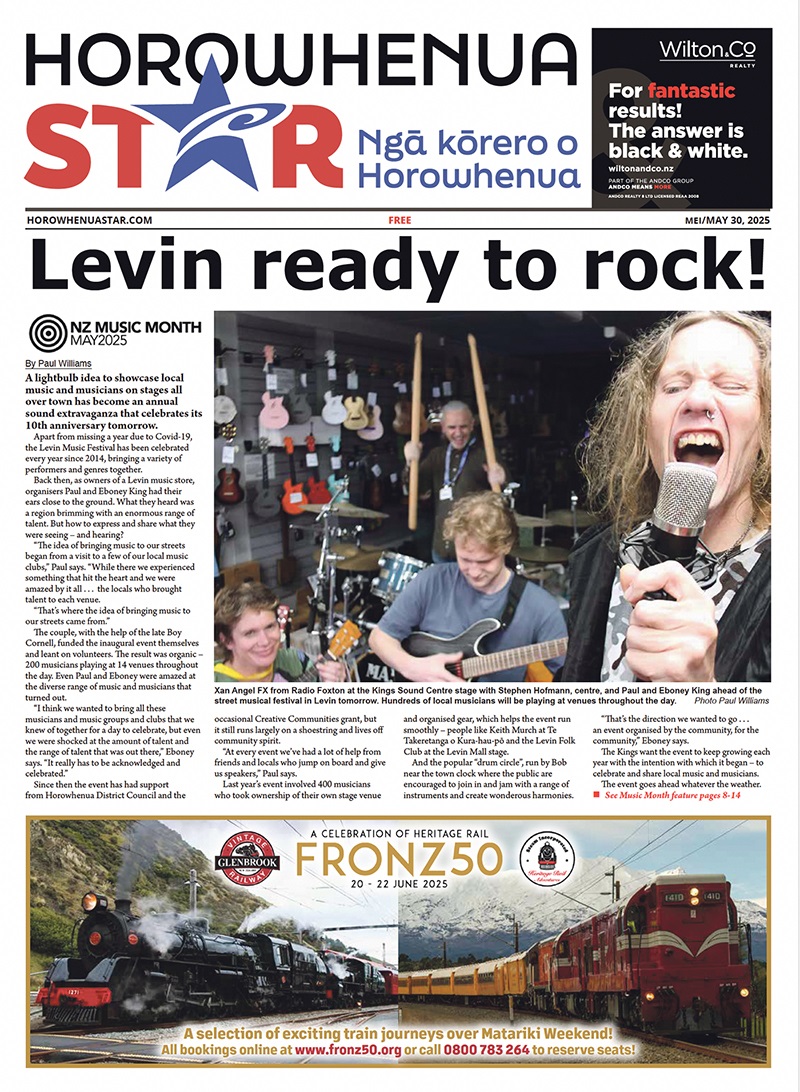The Levin RSA Women’s Section is hosting a ceremony to mark Purple Day, a chance to remember the service of animals, especially horses and dogs, who served in both World Wars and other conflicts, as well as in peace time. The ceremony will be on Monday (February 24), 10.30am at the Cenotaph in Levin’s Memorial Gardens, where a plaque remembering animals was added on Purple Poppy Day In 2023. All are welcome, including assistance animals who support members of the community.
Purple Poppy Day was created in the UK in 2006, designed to replicate the red poppy of remembrance and commemorate the service of animals during wartime.
The day has been marked in New Zealand for five years now. Purple poppies are now worn to honour animals who were victims of war, as well as those serving in the military and service dogs working in the community today.
A Purple poppy works the same way as the red poppy does on Anzac Day. Some people like to wear both, to symbolise the close relationship between service personnel and war animals, and the importance of remembering both.
A War Animal Memorial was unveiled at Waiouru in 2018 and the museum now remembers and honours war animals every year, particularly those who gave their lives in conflict.

Captain Guy Powles of the Wellington Mounted Rifles on Bess, one of only four of 10,000 horses from New Zealand that returned from the First World War.
Photo nzhistory.govt.nz
Many war horses, dogs, camels and pigeons were killed during service in the First World War. Some mascot animals went to war with their owners, but many were strays picked up along the way. While dogs were the most common military mascots, others included cats, donkeys, monkeys, lizards, pigs, goats and birds.
More than 10,000 horses left New Zealand to serve in the Great War. Only four returned home. The most famous was a black thoroughbred named Bess. When the war broke out the government bought horses from farmers and men who were signing up to fight.
Bess was originally named Zelma. She was renamed by Captain Guy Powles of the Wellington Mounted Rifles Regiment. She served him throughout the war in Egypt, the Sinai, Palestine and France, and after taking part in the 1919 Victory Parade in Berlin, returned to New Zealand with Powles in 1920.
Bess helped Powles perform his duties as commander at the GHQ school at Trentham and then as headmaster at Flock House, an agricultural training school for the dependants of war veterans.
In 1934, Powles was riding Bess up a hill on the farm when she collapsed and died. Powles and his sons buried her where she fell and erected a memorial to her.
The horse was awarded the Blue Cross Medal from the UK in 2020. The Blue Cross charity established the Blue Cross Medal for war animals, the first awarded to war horses in 1918.
Two New Zealand war dogs have been awarded the Blue Cross. Ceasar the bulldog was both a mascot and a trained Red Cross dog in the First World War. Wearing his official collar, he led a parade down Queen Street in Auckland before the Rifle Brigade left New Zealand.
Ceasar’s Red Cross training included learning to navigate a replica battlefield littered with logs, branches, upturned wagons and bomb craters. A small harness around his body held bandages, water, and pencil and paper so wounded soldiers could write notes for Ceasar to deliver.
The National Army Museum in Waiouru awarded a Blue Cross to Ceaser in 2019. He was New Zealand’s first recipient of the medal. His name was misspelt originally, and so it remains, Ceaser, not Caesar.
Ceasar was killed in action. His collar is now at the Auckland War Memorial Museum.
The other Kiwi dog awarded the Blue Cross was Gunner, in 2021. He was adopted in Afghanistan by the New Zealand Provincial Reconstruction Team Kiwi patrol base in Nayak, where he served as a guard, a pet and a mascot.
Gunner won the hearts of soldiers operating out of Nayak, about four hours’ drive west of the main Kiwi base in Bamian. He was a great guard dog, who would kick up a fuss if anybody came around the base, and would snap at the ankles of strangers.
He was loyal, fiercely protective of the Kiwi base and enthusiastically welcomed home soldiers when they returned from daily patrols.
Animals are still working today. Highly trained explosive detector dogs serve with the military, police dogs help catch offenders, sniffer dogs patrol airports, and pet therapy and care dogs support members of local communities.
We honour their deeds and faithfulness.
Linda is heritage and communications co-ordinator at Te Takere. She’s also been a volunteer at the RSA and a genealogist with the local Family History Group.
OTHER STORIES




